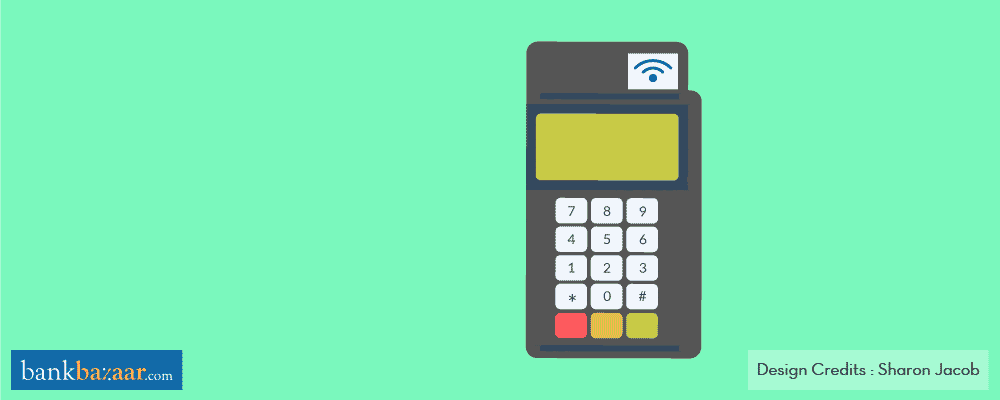
How we pay for things and services that we need has evolved over the years. From following the barter exchange system, which was quite sophisticated back in its time, we’ve progressed to relying on cashless transactions today. The contactless payment method, with all its benefits, seems like the most likely successor.
So, how do we describe contactless payment? Contactless payments method allows you to make a transaction, using a Debit Card, Credit Card or smart card, through the use of radio-frequency identification (RFID) or near-field communication (NFC) technologies. To make contactless payment, all a person needs to do is tap his/her card or phone near a point-of-sale terminal for a transaction to go through. That’s all! No punching in the PIN number or a password. For its savvy style, this payment method has become popular by the name of – ‘tap-and-go’.
Additional Reading: You Could Soon Buy Mutual Funds Via Digital Wallet
How does this work? Cards and devices that are equipped to make contactless payments come loaded with a chip or an antenna which help make a transaction when in close proximity to a point-of-sale terminal.
Samsung Pay is an example of a contactless payment method. Another way to understand the idea of contactless payment is by looking at how IDs are used to gain access to office premises. In many work places, employees hover their ID card over a terminal by the door that disengages the magnetic lock. Contactless payment method works on the same principle.
The payment method is still in an early stage of adoption and needs tinkering. Security is one of the main concerns regarding this payment method. A lack of pin and password places the payment details of the users at the risk of online theft, while leaving the transaction details vulnerable to hacking.
Due to this limitation, there might be limits placed on the size of the transaction. Take e-wallets for instance. Their security might be questionable and that is why, as per RBI guidelines, you can deposit only Rs. 20, 000 in your digital wallet with a minimum KYC and up to Rs. 1 lakh by providing full KYC details. Digital wallets, such as Paytm, too fall under the umbrella of cashless transaction methods.
In spite of all the limitations and concerns surrounding the contactless payment method, this payment infrastructure boasts one of the highest observed deployment rates.
Additional Reading: How To Use Digital Wallets Effectively For Online Transactions
What is the advantage of adopting the contactless payment method?
Why would consumers and merchants move to the contactless payment method when we already have a strong network of cash and card in place? What are the benefits?
The biggest USPs of the contactless payment method are – ease, speed and convenience of making payments. We adopt newer technologies to make things easier for us. We can now order-in food with a few clicks on our phone, book movie tickets and even apply for Credit Cards, Insurance products and investment options online. So why should the payment method involve standing in a line or fumbling to find change in your bag or wallet. Contactless payment removes all these obstacles and allows you to make payments in a jiffy. No swiping and punching your pin or signing a receipt.
Is this a good enough reason for people adopt this technology? As per research, merchants in the United States, where contactless payments technology has the largest footprint, have recorded a 20-30 percent increase in transaction with the use of this technology. This is due to the fact that contactless payment method is 63 percent faster than undertaking a cash transaction and 53 percent faster than a regular card transaction. Merchants are also warming up to this payment method because it offers operational and cost efficiency other than a jump in transaction volumes.
Additional Reading: Digital Cash – A Cashless Transaction
Although security concerns still hover over the contactless payment method, the answer to the problem lies within the payment ecosystem. Smart chips can be used to encrypt customer data so that details are not lost to unauthorised entities mid-way through a transaction.
Contactless payment method will also have a domino effect on the retail industry. RFID technology can be used to keep an inventory of products with minimum human interference. So, no more standing in queues to bill your purchases. They get billed to your account as and when you lift them off the shelves. This is not a line from a sci-fi movie or a research article on futuristic technology.
An example of this kind of store is the recently launched Amazon Go brick-and-mortar store. The store is operated using RFID, video and Bluetooth technologies along with artificial intelligence. You walk into the store, pick what you want and walk out. No billing counters. Contactless payment technology does the job.
Additional Reading: Going Cashless: Here’s What You Should Know
Contactless payments method is expected to influence every other facet of life with time. But, for now, it is closely linked with Credit Cards. We have a host of them on offer. Let’s explore, compare and find a card for you.